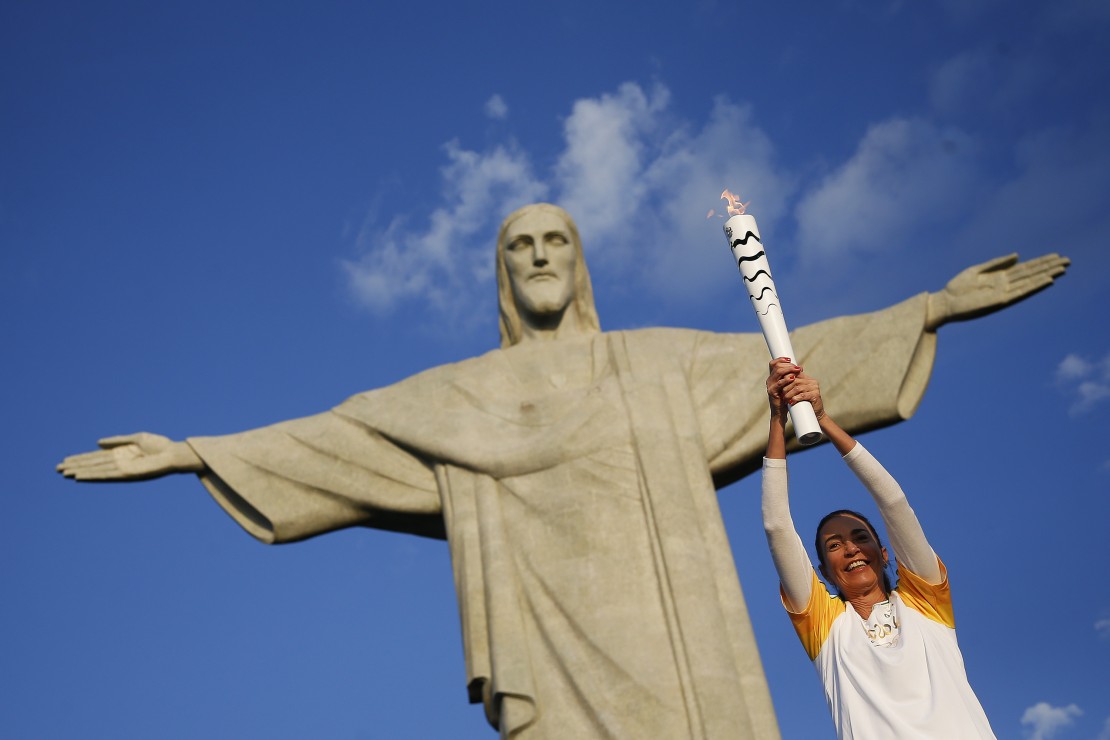From the provincial housing crisis to near-weekly terror attacks, 2016 has felt like an apocalyptic year. But for the next couple of weeks, the impending doom of our world will be put on hold so that we can partake in the joy of sport. The Rio Olympics have already begun to fill my newsfeed, replacing the usual awful images of ISIS violence, melting ice caps, police shootings, and Trump’s gleeful grin. I can’t be the first to admit that I welcome this change of scenery.
However, as much as I want to embrace the inspiring performances of high level athletes, I can’t help but notice the negative light cast over the Olympics this year. From the Zika virus, to the President Dilma Rousseff’s potential impeachment, to the overwhelming reports of gang violence, the news out of Rio over the past couple months has been nothing but fear and negativity. Even CBC began their broadcast of the opening ceremonies with a video montage that acknowledged the political, environmental, and socioeconomic challenges that Rio has had leading up to the Games. And beyond Rio, it’s no secret that issues of displacement, debt, and militarization were prominent in London, Beijing, Sochi, and even Vancouver.
My question: is it really possible to stage a peaceful and sustainable global gathering of athletes? And are the Olympics even worth it?
I’ve been a competitive athlete for most of my life. For the past four years, I’ve raced for the UVic varsity women’s rowing team, and I was a competitive swimmer before that. My time as an athlete has taught me how to be disciplined, how to learn from my failures, and how to move beyond what I ever thought possible of myself. It has also given me a supportive community and lasting friendships.
My sporting community includes people who are at the Olympics right now. I’ve seen athletes training for the Games over the last four years at the National Training Centre just two boat bays down from UVic. I even watched one of my teammates from high school row in her first Olympic race on Monday morning. So my questions – and slight skepticism – about the Olympics come from a personal place. What’s the point of sport if an Olympic gold medal comes with the baggage of all the horrible things that we’ve seen out of Rio?
Athletes have always been encouraged to stay away from politics and focus on winning medals. As much as the media romanticizes the beauty of both failures and success in sport, anyone who has read a national team mandate will notice that the only goal is to win Olympic medals. And while athletes are told to focus on medals and stay away from politics, their participation on the world stage becomes inherently steeped in nationalist sentiment.
As I accelerated into the higher levels of my sport, it was assumed that I would want to train and race for the Canadian national team. However, being the critical UVic political science major that I am, I always felt uncomfortable with the idea of competing for a country whose colonial construction I fundamentally disagreed with. It isn’t that I’m not proud of certain aspects of being Canadian; it’s more that the higher you excel in athletics, the more it’s assumed that you’re a committed nationalist. And even beyond neocolonial Canada, in places like China or Russia, Olympic medals are fuel to the fire for anti-democratic tyrannic regimes.
For me, sport will always be about the journey and the people I meet along the way. The more politicized that sport becomes — from navigating the politics of national sport organizations to driving questionable nationalist agendas — the more there needs to be a critical eye on what exactly sport is about in the first place. For most athletes, sport will always be about peaceful competition amongst respected equals, each with their own amazing stories of personal growth to tell.
I don’t believe that the Olympics are worth the plight, but I do believe that the high level athletes who we see at the Olympics need to be more consistently showcased. The Olympics are one of the only platforms through which the whole world can watch women in sport. And some individual sports, including cycling, athletics, triathlon, swimming, and beyond, are only broadly televised when they’re on the Olympic stage. Can’t we watch these athletes and hear their stories without an overly extravagant event that displaces thousands and drives the host community into crippling debt and a political crisis? I’d like to believe it’s possible.
Unfortunately, I do not have solutions. But I do have a request. As we watch the amazing feats of sport this week, take a minute to appreciate the soulful stories that brought these athletes to their defining moments. We should continue to ask the critical questions about what sport, nationalism, and the Olympics really mean in this increasingly interconnected and globalized world.
Please watch the Olympics. But watch them with your eyes open.







